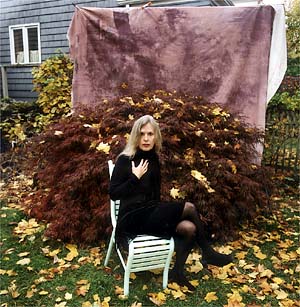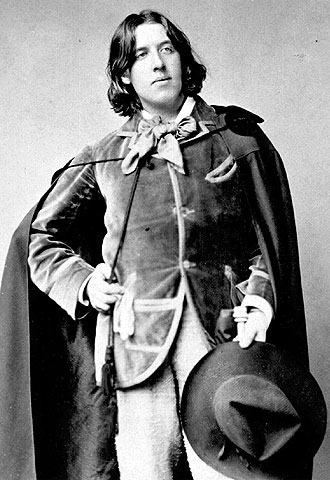Feedback (8)
By:
November 12, 2010

FEED (November 12, 1999): “BEAUTY IS TRUTH, truth beauty.” Ten thousand pieces of cultural criticism have kicked off with this bit of wisdom from Keats’ “Ode on a Grecian Urn.” Which is why, this past summer, Harvard professor Marjorie Garber wrote an essay for Critical Inquiry pointing out that it is the urn, not the poet, that says so. Had it not been for the subsequent release of the film American Beauty, whose whirling plastic bag image could be charitably described as a Keatsian conceit, Garber’s lit-crit thunderbolt would probably have just knocked down one of those fabled trees whose fall no one hears. But a couple of millennia after Plato’s Symposium, which argues that an attraction to physical beauty can result in attachment to laws and customs, the once-burning question of the proper relationship between truth, beauty, and the public good is suddenly back in the news.
This is the eighth in a series reprinting FEED Dailies written by the author in 1999-2000.

Last month, in a typically overwrought installment of his New York Observer column, Ron Rosenbaum used Garber’s article as an excuse to attack the facile aestheticism of the American Beauty-loving public. Not only, he growled, is it wrong that anything beautiful must be truthful (the “Supermodel Interpretation of Keats”), but it’s also wrong that truth makes beauty truthful, and vice versa. In fact, Rosenbaum continued, Keats’ line “that is all/Ye know on earth, and all ye need to know” — spoken by the poet, not the urn — might be the poet’s way of saying that we just can’t handle the truth about beauty, as Jack Nicholson’s Colonel Nathan Jessep would put it. Not only is beauty not truth, Rosenbaum concluded, beauty is a frighteningly seductive distraction from the truth. It’s a thought that situates him in a tradition which goes all the way back to the Second Commandment’s injunction against “graven images” of God, as well as Walter Benjamin’s argument that fascism was the “aestheticization of politics.”

Rosenbaum’s quixotic attempt to re-open the beauty/truth debate had only been lining the cages of New York City’s ferret population for a few days when another Harvard professor entered the fray. Aesthetic philosopher Elaine Scarry’s new book, On Beauty and Being Just, argues that the too-often oppositional character of the beauty/justice pairing in Western thought is just plain wrong. Defending beauty against the charge that it’s politically incorrect — because beauty tempts us away from our serious pursuit of truth and justice — Scarry insists that even the briefest somatic experiences of beauty can call us into a protective relationship with a world that no longer seems so ordinary.

It’s the fin de siècle all over again! If Rosenbaum is a curmudgeonly Walter Pater, and Scarry a politically vague John Ruskin, one must ask: Who is the new Oscar Wilde? Who among us will be so daring (i.e, like Wilde) as to reconcile an aestheticism that denies any connection to truth and morality (Pater) with a morality that insists that the aesthetic experience can help remedy injustice (Ruskin)? Will it be the New York Review of Books writer, Stuart Hampshire, who confessed during his review of Scarry’s tome that watching Fred Astaire dance makes him weep? Or the Salon critic, David Bowman, who discovered in the course of interviewing Scarry that his cynical tongue had been transformed into “a lumpy potato” by her impassioned optimism? Whoever it turns out to be, let us hope that he or she will wake us from what the great aesthetic liberal William Morris called “the nightmare of commercial ugliness.” Even if that means no more Pokémon.
Launched in May 1995, the web magazine FEED — which helped launch the careers of Steven Johnson, Steve Bodow, Keith Gessen, Joshua Micah Marshall, Erik Davis, Christine Kenneally, Alex Abramovich, Chris Lehmann, Sam Lipsyte, Alex Ross, Clay Shirky, Ana Marie Cox, and many others, including yours truly — went offline in the summer of 2001. In June 2010, its archives were made available.
